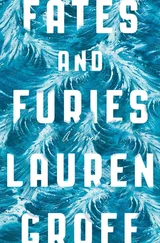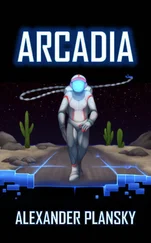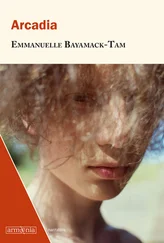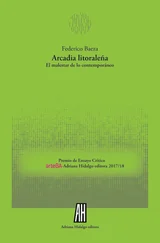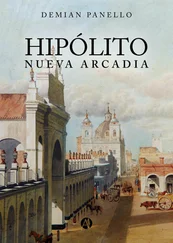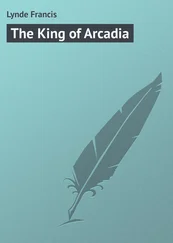I’ll say honeybees, says Astrid. You remember before the die-off? Their funny fuzzy bodies. Always, they seemed to me, the symbol of happiness.
I remember, says Bit. But it’s not just Arcadians dying off. It’ll be all of us soon enough.
Astrid frowns at the bottle in her hand. That sickness hasn’t reached us yet, she says. It will be contained. It always is.
I don’t mean the sickness, he says. That’s just a symptom. Too many people, too little land, the oceans polluted, animals dying. It makes me think we don’t deserve to be saved.
She puts down the medicine and spears him with her icy blue stare. If this is what you think, she says, I don’t know who you are anymore, Ridley Stone.
He opens his mouth, but finds no words there. In any case, he can say nothing for the bald eagles, the bullfrogs, the honeybees, just now filling up his throat.
The house is quiet, save for the gentle ticking of solar panels on the roof. Hannah has disappeared into her room; Astrid has driven her rented car to the airport, promising to return when she’s needed, damn the fortune it takes to fly these days; Grete has gone for a furious run.
After so many days full of people, it feels good to Bit to have this solitude. He wanders into Hannah and Abe’s little office. It is shining, even the drafting table Abe had used as a desk. Abe kept some of Bit’s earliest photos on a shelf: Verda’s face, reflected again and again in a heap of tarnished silver; Helle standing on the boulder by the Pond, reflecting into two long girls joined at the ankle; Hannah, gorgeous and young and slender on Abe’s lap, both beaming as they hurtle down Arcadia House hill as fast as Abe’s wheelchair could take them.
He reaches out with his finger and brushes Hannah’s cheek. He can’t believe what babies they were. The reaction seems to well up all the time now. A few months ago, walking through the city, in the window of an old record store he looked up to see a huge poster of Janis Joplin with round glasses and feathers in her hair, and almost wept at how just-hatched she’d looked. Now, nestled behind his photos, he finds his first Leica, the one his Kentucky grandmother had sent him. He picks it up, marveling at its lightness. Since he begrudgingly began to use digital cameras, a few years back, began doing more commercial work and less of his own art, his own analog gear has sat neglected on its shelf. He has grown accustomed to the ease of digital life.
He rummages in Abe’s drawers and finds a shoebox of color film. He feels a dizzying upsweep of possibility: the rolls could be thirty years old and useless, true, but the distortion of age could make for the unexpected, the sublime: the emulsion cracked or melted, the plastic fragile and easily rent, the effects unreplicable. In his mind, the images unfold atop one another like layers of translucent tissue: ripples of off-white and red, a watercolor cloud composed from the silhouette of a tree, a bubbled landscape of grasses.
He wants to sing. How perverse, the possibility of beauty, unearthed when he least expected it. That there could be such surprises left in the world. He goes out into the sunlight, something softening and settling within him.
The winter before Leif disappeared was the last time Bit had walked out into the forest. He was usually in Arcadia briefly, to drop Grete off for a month in the summer or to spend a night during a holiday. That time, they had all taken a walk together on the twenty miles of trails that Erewhon kept up. His parents were hale, Astrid and Handy were there, Leif even let them see him smile. Bit pushed Abe easily over the frozen ground, his father turning around once in a while to beam at him, his grizzled beard full of ice. Every so often, employees would whip by, snowshoeing or running or in the sleek black uniforms of cross-country skiers, gliding over the hills like tall skinny birds. Grete was a little girl still, her long legs gawky as a fawn’s. She tried to pack the powder into snowballs and heave them into their faces. Their breath wreathed their heads, the crows shimmered so black they were green. It was just an average afternoon in the winter’s dim at the end of a forgotten year, but that day, everyone was happy.
Now the Pond is forlorn, with its lifeguard chair overturned on imported sand. A kickbuoy between two rocks makes a sad thumping sound in the wind-driven waves. Bit thinks of another man at another pond, long ago; the way Thoreau saw the moon looming over fresh-plowed fields and knew the earth was worthy to inhabit.
Bit is not so sure. Besides, there are no fields here. In what he remembers as the sunflower patch, he finds thirty-year-old trees, more enormous than the trees of his youth, greener, casting deeper shadows: all the extra carbon in the air. He follows a strange metallic scrape off into the brambles and, after some effort, locates Simon’s sculpture for Hannah in a wild raspberry bush. Swords into plowshares, the painful earnestness of the thing. Oh, he thinks, helpless before the squat sculpture. This could be a poster illustrating the early eighties. It is iconic, almost already in silkscreen.
He laughs, and the forest, which he has missed to his marrow, laughs back at him. He feels everything, the birds swinging on the currents of air, the early ferns uncurling, the creatures hunched somewhere, watching him. Faster, almost running, he goes through the woods that were once cornfields. These he remembers as sorghum, the Naturists bending in their sun-bronzed flesh to weed. He emerges onto the edge of the tennis court Leif put in, plunked in the middle of what had been the soy patch. Already, tiny trees have sunk roots into the clay. They stand, brave and budding on the fault line, like a small child’s prank.
Back into the woods, toward what he vaguely remembers to be the waterfall, the trail grows narrower, more overgrown. Hannah, when she could still walk, probably didn’t make it this far to trample down the weeds. Two years of growth have almost swallowed the path. The day dims into twilight. He catches spiderwebs with his cheeks.
He comes into a natural clearing, and a shriek startles his heart to flapping.
Grete stands at the far side, clutching a stick like a baseball bat, her face paper white.
Dad, she says in a wobbly voice. Oh, I’m so glad it’s you.
Lost? he says. He tries not to smile. What luck to find his daughter the one time he wasn’t looking for her.
She shrugs. Kind of, she says. But mostly I thought you were a bear.
He takes a photo of her as she picks toward him over the grasses in the last slant of sun. She stops when she is near. She stinks of sweat, has scratches on her face and brambles in her many pink braids, and her face is raw as if she’s been crying. She must have been out here for hours. They are miles from the Sugarbush. On her own, she wouldn’t have been back until deep in the night, if not the morning.
It’s this way, he says, gesturing into the throat of the woods.
Okay, she says. She starts, but stops and turns to him. I just. I’m sorry.
I know, he says.
I’m scared, she says. I don’t want to watch Grannah die.
Me neither, he says, pulling her toward him.
Grete’s teeth clatter. It is colder up here, away from the city; although it’s still late winter, he remembers summer nights so long ago, filled with exactly this fresh dampness, as if exhaled from underground. They come out into the Sugarbush when it’s dark, and the moon fills the tree limbs with a shifting, breathing light. The other houses sit in darkness, ownerless: Midge in Boca Raton for the rest of her days, Titus and Sally having died in a terrible car accident years ago, Scott and Lisa with too many houses to care much about the cottage they’d built in protest of Erewhon twelve years ago.
Читать дальше
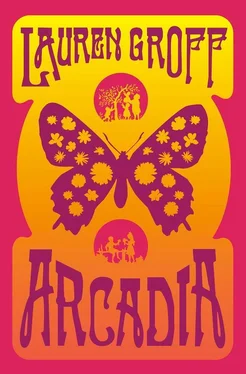
![Andrea Höst - In Arcadia [Touchstone - Extras]](/books/56405/andrea-host-in-arcadia-touchstone-extras-thumb.webp)

